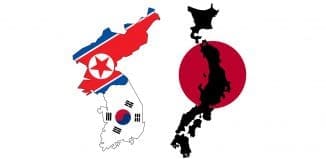Japan – A Difficult Market with Great Potential for Israeli Companies
This post is also available in:  עברית (Hebrew)
עברית (Hebrew)
 The Japanese market is not that well known in Israel, but it appears to be opening up to HLS deals.
The Japanese market is not that well known in Israel, but it appears to be opening up to HLS deals.
Let’s start with some background:
The Japanese army is large and modern, but is restricted in its activities due to legal and political limitations. The Japanese constitution limits the army’s activity to the defense of the country, and any activity exceeding its borders which may be considered as aggressive is forbidden. In recent years Japan has participated in international forces, but only when granted strong international legitimacy and to serve only in roles providing assistance usually as logistics forces.
Both in terms of internal Japanese politics as well as an outside view by other Asian countries, a deep suspicion remains and caution is exercised regarding Japanese military activity, especially following the trauma of World War II.
The Japanese defense system is based on self sufficiency. Most of its military arsenal is locally made. In the aircraft domain, Japan builds American fighters under license even though it doubles or triples the cost of the airplanes. In the land and maritime domains, Japan’s defense needs are based on self-production. The reasons are both political and economical. All major companies in Japan deal in part with military equipment and are granted multi-billion dollar contracts every year. They share the work among themselves thus ensuring that each company gets its share of the procurement ‘cake’.
Japanese law forbids the export of Japanese weapons. This makes production batches smaller and the products more expensive.
Japan’s defense system is tied by an umbilical cord to the U.S both in political terms as well as in common training sessions, warfare doctrine, and procurement, etc. Japan hosts American Air Force, Navy and Marine bases.
The import of security equipment is subject to approval by the Japanese Ministry of Foreign Affairs. The ministry rejects any prospective arms deals with Israel as ‘contracts with a country in a state of war’.
The Japanese constitution also limits the activity of Japanese defense and intelligence services. Major public sensitivity exists regarding the subject of moving beyond legal limits. Legislation for the regulation of lawful Interception has been held up at the Parliament for a long time.
Due to the differences in language and culture as well as mentalities, Japanese buyers prefer not to buy goods directly from foreign countries. Instead they prefer to use the services of a trade company or local integrator who also perform any necessary adaptations.
There has been a slow and gradual change in the Japanese attitude regarding the subjects of defense and HLS over the past two years, and this is based on the following factors:
- Aggravated relations and a feeling of threat from China.
- The threat from North Korea even though it is of relatively limited concern due to America’s defense ‘umbrella’ for Japan.
- Cyber attacks on Japanese public administration and industry.
- The wish to help the military industry by removal of political export limitations.
- The return to power of the conservative LDP party and the adoption of a slightly more active policy regarding defense and foreign affairs.
- Following Fukoshima there has been interest generated regarding HLS subjects, but the scope of interest in products from abroad is limited, as was explained above.
Although political relations between Israel and Japan are good, Israel looks at Japan mainly from a civilian economic angle. Defense related cooperation is relatively limited (in particular when compared to Japan’s relations with European countries, not to mention the U.S.) and this is based on Japanese political limitations as well as a difficulty by Israelis to adapt to the Japanese way of doing business.
Israelis find it difficult to understand the Japanese way of doing things, the pace at which they conduct business, as well as a lack of common language. It is also difficult for Israelis to comply with Japanese criteria for conducting negotiations as well as the Japanese emphasis on previewing every proposal.
Israelis emphasize originality and creativity as opposed to the Japanese who place strong emphasis on product completeness and its absolute conformance to their needs. Another limiting factor is the lack of Israeli readiness to enter into long term investments in order to promote its security business with Japan.
Israel Green is one of the few businessmen who are currently active in the Japanese HLS market. This activity is based on close cooperation between two companies, ASIS ENTERPRISES from Israel and PONTIS of Japan.
ASIS ENTERPRISES is managed by Israel Green, who has utilized his experience in the defense market, including three years of service in Japan. PONTIS is managed by Amir Raz, an Israeli who has been living in Japan for many years. They represent the two major Israeli related companies’ active in the HLS area.
“Our activity,” said Israel Green, “is focused on end users (such as government offices) and local integrators, and it is based on contacts that have been made via formal and non-formal channels. “
Green added that in order to conduct business in Japan, one has to understand the local mentality, while remaining aware of the substantial business potential in the country.





























